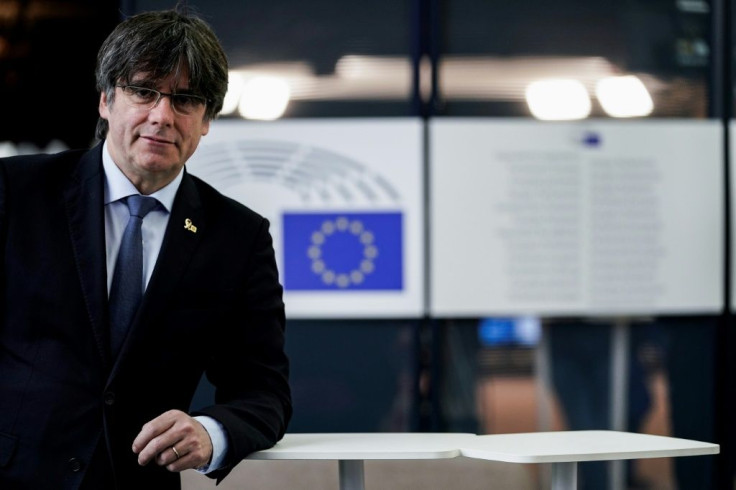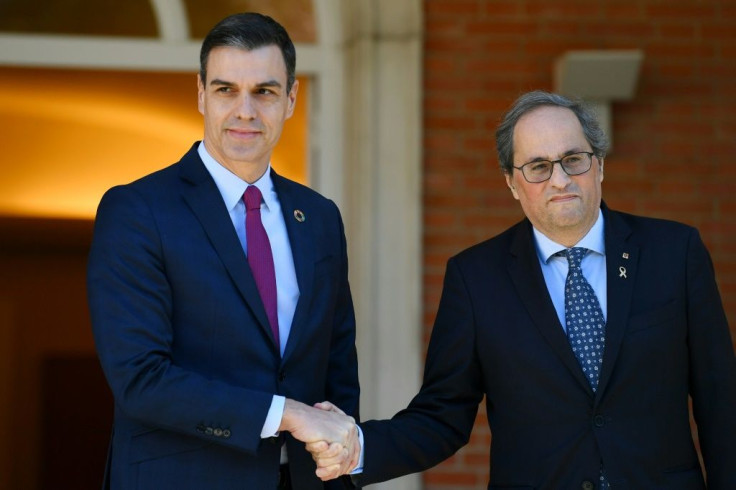Catalan Exile Still Hopes For New Independence Vote

Exiled Catalan independence leader Carles Puigdemont still hopes the dialogue underway between Spain and his region will lead to an authorised independence referendum, like the one once held in Scotland.
But, in an interview with AFP in Brussels, where he serves as a member of the European Parliament despite being subject to a Spanish arrest warrant, Puigdemont expressed scepticism that Madrid will agree.
In 2017, as the then regional president of Catalonia, Puigdemont helped to organise a referendum on the wealthy Spanish region's independence.
But -- unlike Scotland's peaceful 2014 vote, which was authorised by the UK government in London and resulted in a win for British unity -- Catalonia's referendum was banned by Spanish authorities.
Several pro-independence Catalan leaders have since been arrested and charged, and some are serving jail terms for sedition, but Puigdemont is one of those who fled to Belgium and have since been elected as MEPs.

Back in Spain, the new Spanish government is holding a dialogue with other Catalan representatives, and Puigdemont has not given up hope that the crisis will be resolved -- but he's cautious.
"The state has not demonstrated anything so far. It has only changed a few words, it has sat down. It is clear we value it, that is why we are there. But let no one be confused, we want results," he told AFP.
He called for "an agreement between the Catalan and Spanish governments to organise a referendum on self-determination as was done in Scotland."
"That would be a very good, good start, even if this could not be resolved in a few months," he said.

The Spanish government, whether under the conservative Mariano Rajoy or the current socialist premier Pedro Sanchez, has always insisted an official independence vote would be unconstitutional.
Puigdemont disputes this. "The Constitution preserves the right to freedom of expression," he said, adding that the current Catalan authorities are talking despite having allies in jail or exile.
He called on Madrid to "reciprocate this effort" with a commitment to "explore, within the framework of an open reading of the Spanish Constitution" a path to a new referendum.
"We should not trust a long-term process if all we are waiting for is to know whether or not the people support that process," he said, a week after the Sanchez government started talks with Catalan region, where fellow separatist Quim Torra is the current president. Puigdemont is himself fighting a Spanish request that he lose his EU parliamentary immunity and return to face trial.
He refused to say whether he would stand in the upcoming Catalan regional elections, in which his Together for Catalonia (JxC) party faces off against fellow separatists the Republican Left of Catalonia (ERC).
Sanchez leads a minority Spanish government and its survival could hinge on the fate of the talks, which are aimed at walking back tensions with the Catalonian separatists and securing ERC votes.
ERC demanded the dialogue in exchange for its continued support for Sanchez's government and as a precondition for possibly backing his 2020 budget.
If the Socialist premier can pass a 2020 budget, it might afford him a few years of stability under his existing spending plan.
But if the budget is not approved by parliament, fresh elections would have to be held, as happened in 2019 when the ERC withdrew its support.
© Copyright AFP {{Year}}. All rights reserved.





















